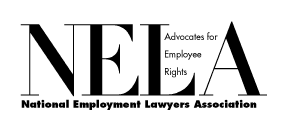Family And Medical Leave -- FMLA
The FMLA entitles eligible employees of covered employers to take unpaid, job-protected leave for specified family and medical reasons with continuation of group health insurance coverage under the same terms and conditions as if the employee had not taken leave.
Eligible employees are entitled to twelve workweeks of FMLA leave in a 12-month period for the birth of a child and to care for the newborn child within one year of birth, or the placement with the employee of a child for adoption or foster care and to care for the newly placed child within one year of placement, or to care for the employee’s spouse, child, or parent who has a serious health condition, or a serious health condition that makes the employee unable to perform the essential functions of his or her job, or any qualifying exigency arising out of the fact that the employee’s spouse, son, daughter, or parent is a covered military member on “covered active duty;” or twenty-six workweeks of leave during a single 12-month period to care for a covered service-member with a serious injury or illness if the eligible employee is the service-member’s spouse, son, daughter, parent, or next of kin (military caregiver leave).
This means that employers are prohibited from retaliating against employees who avail themselves of FMLA protected leave, or interfering with qualifying FMLA protected leave.
Employees who feel they may have been improperly denied FMLA medical leave or that have suffered retaliation or interference in relation to taking FMLA medical leave, should contact an FMLA attorney to assess the value of their potential claims.
Click To Return To Ohio's Employment Attorney
The FMLA entitles eligible employees of covered employers to take unpaid, job-protected leave for specified family and medical reasons with continuation of group health insurance coverage under the same terms and conditions as if the employee had not taken leave.
Eligible employees are entitled to twelve workweeks of FMLA leave in a 12-month period for the birth of a child and to care for the newborn child within one year of birth, or the placement with the employee of a child for adoption or foster care and to care for the newly placed child within one year of placement, or to care for the employee’s spouse, child, or parent who has a serious health condition, or a serious health condition that makes the employee unable to perform the essential functions of his or her job, or any qualifying exigency arising out of the fact that the employee’s spouse, son, daughter, or parent is a covered military member on “covered active duty;” or twenty-six workweeks of leave during a single 12-month period to care for a covered service-member with a serious injury or illness if the eligible employee is the service-member’s spouse, son, daughter, parent, or next of kin (military caregiver leave).
This means that employers are prohibited from retaliating against employees who avail themselves of FMLA protected leave, or interfering with qualifying FMLA protected leave.
Employees who feel they may have been improperly denied FMLA medical leave or that have suffered retaliation or interference in relation to taking FMLA medical leave, should contact an FMLA attorney to assess the value of their potential claims.
Click To Return To Ohio's Employment Attorney



